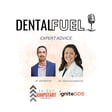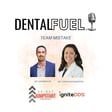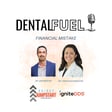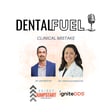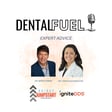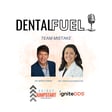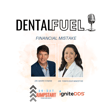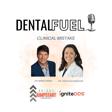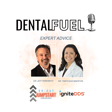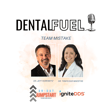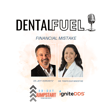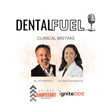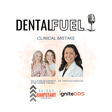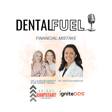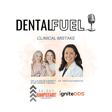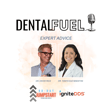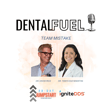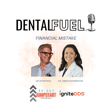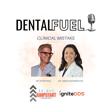
Dr. Adamo Notarantonio: Team Mistake
Dr. Adamo emphasizes the importance of patience and taking the time to learn and grow in the dental field. He warns against the pitfalls of comparing yourself to others on social media and stresses the need to focus on personal growth and improvement.
About the Guest:
Adamo Notarantonio is a highly respected figure in the field of dentistry, known for his commitment to comprehensive dental care and education. With a history of working closely with industry-leading institutions and mentors, Adamo has built a robust career characterized by his dedication to continued learning and clinical excellence. He served as a partner in a well-regarded dental practice straight from his residency until recently stepping down to focus more on his educational endeavors, including being faculty at the Koi Center. Renowned for both his surgical and restorative dentistry skills, Adamo is also noted for his significant contributions to the American Academy of Cosmetic Dentistry (AACD)
Episode Summary:
In an inquisitive conversation with Tanya Sue Maestas, dentist and educator Adamo Notorantonio shares his valuable insights on building a successful dental team and the impact of continuing education on dental practice. This episode delves into the essentials of teamwork, training, and the significance of systems in the dental office, much like those of McDonald's or Starbucks, which can bring uniformity and efficiency. Tune in to discover Adamo's philosophy on learning, teaching, and finding the right practices that work for both the dentist and the team.
Adamo opens the discussion with an emphasis on the need for a consistent and long-term assistant in dental practice, acknowledging the challenges of turnover and the lack of time for training. He reveals that his practice could have benefited from uniform training across all assistants, an oversight he considers critical to maintaining the flow of work in a dental office. Further in the episode, Adamo advocates for the value of entire teams, including doctors and hygienists, attending Continuing Education (CE) programs together to ensure seamless integration of new knowledge and systems back into the practice.
Key Takeaways:
- Tailoring assistant training to ensure long-term consistency and readiness is key for a successful dental practice.
- Uniformity across training for all dental assistants can prevent workflow disruptions when staff turnover occurs.
- CE programs are more effective when attended by the entire team, fostering unity and collective motivation.
- Exposure to various CE programs allows dental professionals to amalgamate different techniques to find what works best for them individually.
- While new techniques and trends like biomimetic dentistry offer new insights, integrating them with existing practices can provide incremental improvements to procedures.
Connect with Adamo Notarantonio : @adamoelvis
Connect with Ignitedds: @ignitedds
Connect with Tanya Sue Maestas: @tsmaestas.dds
Learn more about Well Received: wellreceived.com/ignitedds
